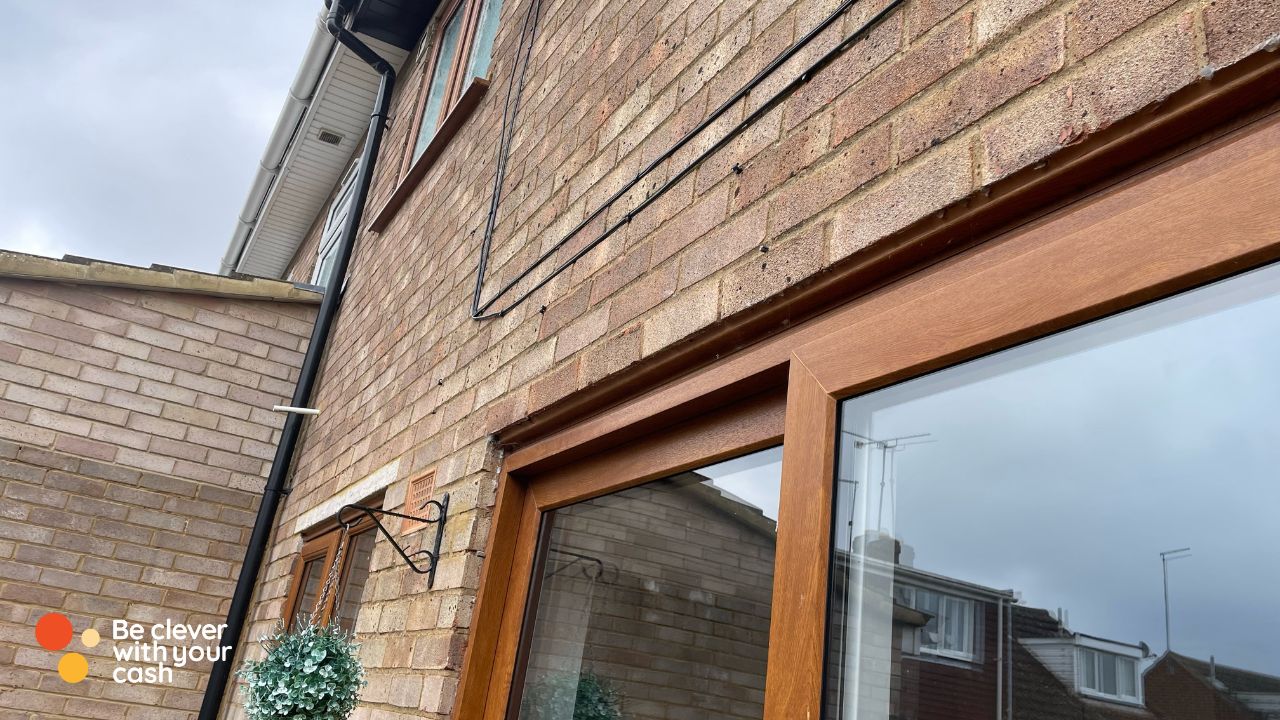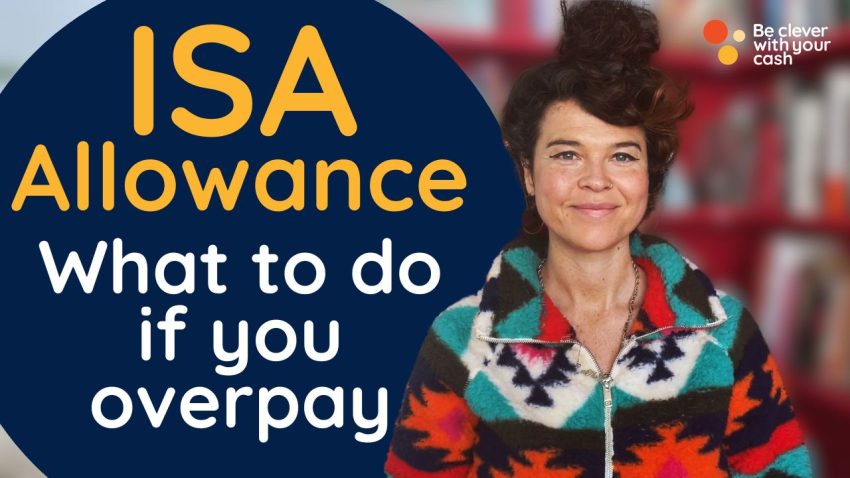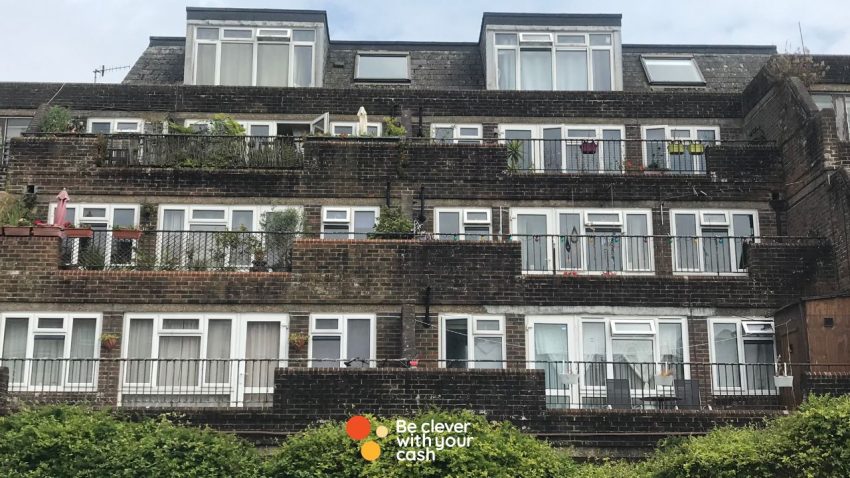The pros and cons of overpaying on your mortgage
Mortgage payments are typically one of our biggest monthly expenses. So, making overpayments to bring the balance down seems like a good idea. But is it always the best option for your spare cash?
Some articles on the site contain affiliate links, which provide a small commission to help fund our work. However, they won’t affect the price you pay or our editorial independence. Read more here.

The pros of overpaying on your mortgage
You can be mortgage free sooner
Being mortgage free gives you financial freedom and more security. Monthly repayments and interest charges stop, you don’t owe your lender anything and you own your home outright.
When you overpay, your lender will give you a choice around how the money is used. You can ask for recalculated payments using the new, lower balance which will reduce how much you pay each month. Or you can choose to keep your monthly payments at the same level and reduce the term instead – for most a better option.
Say you had a £200,000 mortgage over 25 years with an interest rate of 4.5%. If you made a £5,000 overpayment, it would reduce your term by a year and one month.
Whereas, lowering the payment instead would reduce your instalments by £28 per month but not clear it any faster.

Try our mortgage calculator
Our mortgage calculator helps simplify things by giving you an idea of how much you could borrow and your likely monthly repayments.
You’ll save interest
A huge benefit of reducing the term when you overpay is you’ll pay less interest overall. Interest is recalculated whether you make regular overpayments or a one-off lump sum and the savings can be substantial.
Using the mortgage example above, a £5,000 lump sum payment would reduce the interest you pay by over £10,000.
And if you overpaid by £200 every month for 25 years instead of making a one-off lump sum, you’d reduce the term by six years and one month, saving a whopping £36,280 in interest.
Our podcast
Listen to Cash Chats, our award-winning podcast, presented by Editor-at-Large Andy Webb and Deputy Editor Amelia Murray.
Episodes every Thursday.

You can access better deals
Each time you overpay, the outstanding balance is reduced so you own a bit more of your home. This is commonly referred to as the loan to value (LTV) and is the amount you owe on your mortgage shown as a percentage of the property value.
To calculate your LTV, divide the amount you owe by the property’s current value then multiply by 100.
Example: £200,000 (loan) / £300,000 (value) x 100 = 67% LTV
A lower LTV percentage can make you eligible for better interest rates when your current deal ends.
Using our mortgage comparison tables, you can find out the top interest rates based based on your LTV.
For example, here’s HSBC’s five-year deals (at the time of writing) vary for different LTV percentages on a property valued at £200,000 based on a 35 year term.
| Loan amount | LTV | Five year interest rate | Monthly payment |
| £180,000 | 90% | 4.19% | £817 |
| £170,000 | 85% | 4.05% | £757 |
| £160,000 | 80% | 4.05% | £713 |
| £150,000 | 75% | 4.03% | £666 |
| £120,000 | 60% | 3.91% | £524 |
If you originally bought your house with a 10% deposit, your LTV would have been 90%. As you can see from the table, the monthly payment for a 90% LTV product is nearly £100 per month more than the next band down.
If you overpay enough you could drop down to a lower LTV tier, potentially giving you extra savings on your monthly payments (depending on what the rates and value of your home are at the time).
Tier bandings differ between lenders.
Tier bandings differ between lenders. With HSBC (again at the time of writing) an LTV of 80% would qualify you for a two year fix at 4.03%, based on a 35-year term.
If you dropped to 75% loan to value, you could be eligible for a two year fix at 3.95%. With Barclays, an 85% LTV would get you a two year fix of 4.04%, but you’d have to drop down to a 60% LTV before qualifying for their lower rate of 3.88%.
Get the best of our money saving content every week, straight to your inbox
Plus, new Quidco customers get a high paying £18 welcome offer

The cons of overpaying on your mortgage
You could earn more interest in savings or investments
I’ve listed this as a con, but when it comes to savings, whether you’re actually better off putting the money away depends on a few things.
Generally you’ll want to put your cash at whichever has the higher rate. With interest rates on savings falling this year faster than mortgage rates, it’s harder to get a savings account that pays more. But that’s not impossible.
There are very high paying regular savers that are probably higher than even the most expensive recent mortgages. While if you fixed on a very low mortgage a few years ago, then there are even more savings accounts to choose from.
However, when comparing returns on savings you’ll also need to factor in tax due on interest earned above tax-free allowances. Any savings on mortgage interest from overpayments will be tax free.
And if rates are similar, adding to your mortgage usually wins.
Andy talked about the topic of overpaying your mortgage vs adding to savings in a lot more detail and there’s online calculators so you can run the numbers and see which is your best option.
You could also look at adding money to your pension or any investments you have. You’d hope over the longer term that these could bring the best returns out of all the options, especially if you have a low rate mortgage and savings rates keep falling.

Compare mortgage rates and deals
Looking for a mortgage? Find the top rates from over 200,000 deals and 100+ lenders with our live tables.
You might have to pay an early repayment charge (ERC)
If you’re locked into an interest rate, making an overpayment could mean you have to pay a fee to end it early.
The good news is that typically you get a ‘fee-free’ ERC limit of up to 10% of the outstanding mortgage balance each year. So, on a £200,000 loan, that’s £20,000 you can overpay by each year.
It’s worthing seeing if you have a higher limit. In fact, most variable and some tracker mortgages allow unlimited overpayments.
If you want to pay more than any set cap, you have two options. Either wait until your fixed rate deal has ended or pay the ERC.
For the example above, a lump sum of £40,000, you’d be £20,000 over the allowance. If you were in year three of your deal, you’d be likely to pay an ERC rate of around 3%, an extra £600. The ERC is typically between 1-5% but this percentage tends to decrease with every year you have it.
You can’t take the money back
Once the overpayment is made, typically you can’t get it back. There are exceptions. Nationwide for example had a ‘borrow back’ facility for overpayments but only for people who took their now unavailable Base Mortgage Rate (BMR) deal before 4th March 2010. But for most, once it’s gone towards the mortgage, you can’t get it out again without remortgaging for more a larger loan.
Should you use spare cash to overpay or save it?

Katy’s analysis
Being mortgage free sooner is a win for your finances because of how much interest you’ll save. Even if you don’t have a big lump sum, paying a bit extra each month will save you money longer term.
But don’t leave yourself short by funnelling all your spare cash into your mortgage. Have enough money, ideally three to six months of essential expenses, saved in a high interest and easy access account to get you by if you lost your job or had to pay for emergency repairs.
Questions to ask yourself before overpaying
Do I have more expensive debt than my mortgage?
If you have other debts with high interest rates, such as credit cards or personal loans, the interest rate on those will be far more expensive, so use any extra cash to pay those off first.
Are there any big expenses coming up?
Whether it’s having money put away for Christmas, a wedding, a holiday or a baby, don’t leave yourself short when it comes to saving money to cover additional expenses.
Lump sum or regular overpayments?
If you’ve received a work bonus or inheritance you could make a lump sum and remove the temptation to spend it on other things (just watch out for the ERCs). If you don’t have a lump sum but still want to overpay on your mortgage, revisit your budget and see if you can free up money to make smaller, regular overpayments.
Keep the payments the same or reduce the term?
Unless you really need to save money each month on your bills, as our earlier examples show, it’s usually better to keep your monthly payments the same and reduce the term and interest.
Important
*Your home may be repossessed if you do not keep up repayments on your mortgage. Be Clever With Your Cash may receive a payment from Tembo Money if you complete a mortgage through the link provided. This will not affect the amount you pay for the service.
This broker fee discount of up to £499 is applicable for standard mortgages and remortgages only, more complex cases including guarantor, buy-to-let, adverse credit, and equity transfer may be liable for a fee. The fee you are required to pay will be clearly outlined by your adviser prior to an application being submitted on your behalf. The offer does not cover any other potential fees that may arise during the mortgage process.
Tembo Money Limited (12631312) is a company registered in England and Wales with its registered office at 18 Crucifix Lane, London, SE1 3JW. Tembo is authorised and regulated by the Financial Conduct Authority under the registration number 952652. Tembo Money was awarded Best Mortgage Broker at the British bank awards in 2022, 2023, 2024 and 2025. Rates are not guaranteed and may change by the time you come to apply. Eligibility criteria may vary by lender.
Our calculator is only an estimate of how much you are able to borrow and does not constitute mortgage advice





Hello.
Would you recommend the same advice for a car loan. We have 10k to invest after my Isa matured. We owe 28k on the car loan. The interest is 10%. So would you advise paying off 10k on our new car loan?
Cheers in anticipation,
Mark Briggs